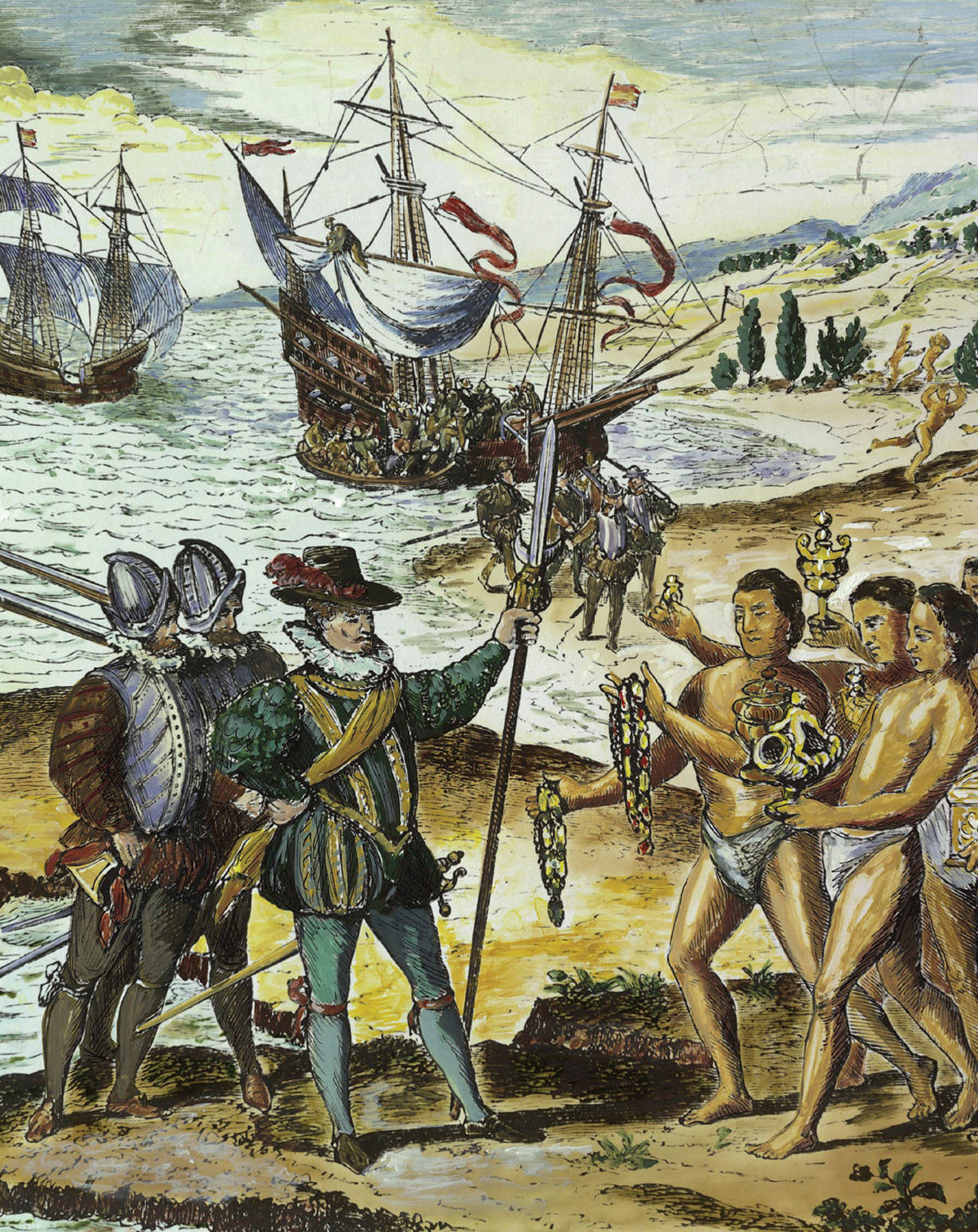Introduction
CHAPTER TWELVE
The Worlds of the Fifteenth Century

“Columbus was a perpetrator of genocide . . . , a slave trader, a thief, a pirate, and most certainly not a hero. To celebrate Columbus is to congratulate the process and history of the invasion.”1 This was the view Winona LaDuke, president of the Indigenous Women’s Network, on the occasion in 1992 of the 500th anniversary of Columbus’s arrival in the Americas. Much of the commentary surrounding the event echoed the same themes, citing the history of death, slavery, racism, and exploitation that followed in the wake Columbus’s first voyage to what was for him an altogether New World. A century earlier, in 1892, the tone of celebration had been very different. A presidential proclamation cited Columbus as a brave “pioneer of progress and enlightenment” and instructed Americans to “express honor to the discoverer and their appreciation of the great achievements of four completed centuries of American life.” The century that followed witnessed the erosion of Western dominance in the world and the discrediting of racism and imperialism and, with it, the reputation of Columbus.
THIS SHARP REVERSAL OF OPINION ABOUT COLUMBUS provides a reminder that the past is as unpredictable as the future. Few Americans in 1892 could have guessed that their daring hero could emerge so tarnished only a century later. And few people living in 1492 could have imagined the enormous global processes set in motion by the voyage of Columbus’s three small ships—the Atlantic slave trade, the decimation of the native peoples of the Americas, the massive growth of world population, the Industrial Revolution, and the growing prominence of Europeans on the world stage. None of these developments were even remotely foreseeable in 1492.
Thus in historical hindsight, that voyage of Columbus was arguably the single most important event of the fifteenth century. But it was not the only significant marker of that century. A Central Asian Turkic warrior named Timur launched the last major nomadic invasion of adjacent civilizations. Russia emerged from two centuries of Mongol rule to begin a huge empire-building project across northern Asia. A new European civilization was taking shape in the Renaissance. In 1405 an enormous Chinese fleet, dwarfing that of Columbus, set out across the entire Indian Ocean basin, only to voluntarily withdraw 28 years later. The Islamic Ottoman Empire put a final end to Christian Byzantium with the conquest of Constantinople in 1453, even as Spanish Christians completed the “reconquest” of the Iberian Peninsula from the Muslims in 1492. And in the Americas, the Aztec and Inca Empires gave a final and spectacular expression to Mesoamerican and Andean civilizations before they were both swallowed up in the burst of European imperialism that followed the arrival of Columbus.
SEEKING THE MAIN POINT
What predictions about the future might a global traveler in the fifteenth century have reasonably made?
Because the fifteenth century was a hinge of major historical change on many fronts, it provides an occasion for a bird’s-eye view of the world through a kind of global tour. This excursion around the world will serve to briefly review the human saga thus far and to establish a baseline from which the enormous transformations of the centuries that followed might be measured. How then might we describe the world, and the worlds, of the fifteenth century?
A Map of Time
| 1345–1521 | Aztec Empire in Mesoamerica |
| 1368–1644 | Ming dynasty in China |
| 1370–1406 | Conquests of Timur |
| 15th century | Spread of Islam in Southeast Asia; Civil war among Japanese warlords; Rise of Hindu state of Vijayanagara in southern India; European renaissance; Flourishing of African states of Ethiopia, Kongo, Benin, Zimbabwe |
| 1405–1433 | Chinese maritime voyages |
| 1420 | Beginning of Portuguese exploration of West African coast |
| 1438–1533 | Inca Empire along the Andes |
| 1453 | Ottoman seizure of Constantinople |
| 1464–1591 | Songhay Empire in West Africa |
| 1492 | Christian reconquest of Spain from Muslims completed; Columbus’s first trans-Atlantic voyage |
| 1497–1520s | Portuguese entry into the Indian Ocean world |
| 1501 | Founding of Safavid Empire in Persia |
| 1526 | Founding of Mughal Empire in India |